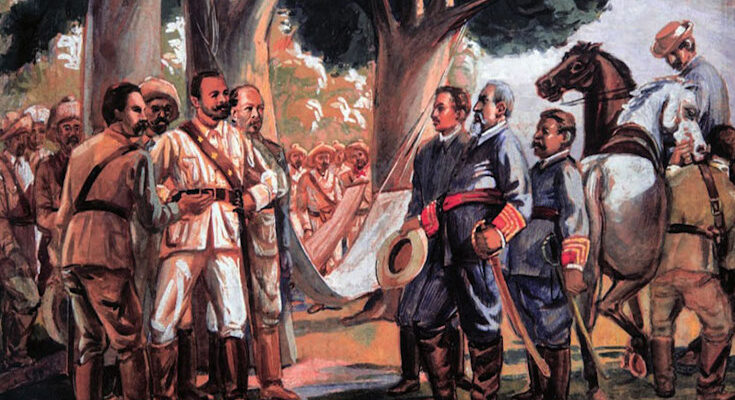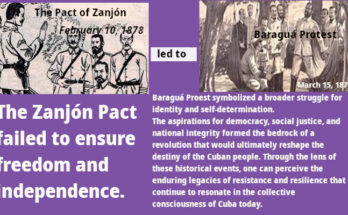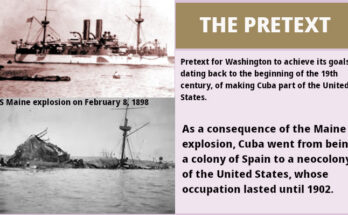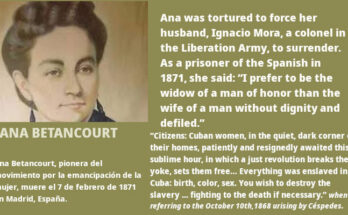For the glory of the Cuban people on March 13, 1878, General Antonio Maceo carried out the Protest of Baraguá, when he rejected with all energy the unworthy proposal of the representative of the Metropolis in the Island, Captain General Martínez Campo, when he suggested the signature of a simulated document that offered the Cuban people a peace without independence.
Maceo and the group of combatants under his command made clear their refusal before the enemy strategy of surrender that incited the cessation of military operations as a condition to reach concord, without real freedom and autonomy from Spain. Then, from the most intricate of the manigua, the firm and resounding voice of the Cuban General was heard, who addressing his men, expressed: “On the 23rd the corojo breaks”, phrase that immortalized him before history, and meant the detonator of the continuity of the emancipating gesture.
Other officers of the Liberator Army supported the Bronze Titan in not admitting that manifesto of surrender. Skirmishes and confrontations would follow, such as the so-called Chiquita War.
Subsequently, there followed times of intense fighting, the wear and tear of ten years of struggle took its toll on the armies, diseases, severe weather conditions and some manifestations of regionalism and caudillismo also damaged the unity of the insurgent forces.
For their part, the Spaniards were exhausted, feared the mambises machetes, and it was very difficult for them to withstand the high temperatures and adapt to the island’s ecosystem, in addition to the loss of lives, wounded and scarce resources.
These and other factors had an impact on the Zanjón proposal, but patriots of Maceo’s lineage continued to rise up and did not give in to the infamy.
Then came the epic of 95, the Necessary War that brought together veterans and new pines in a more consolidated political and organizational structure, the Cuban Revolutionary Party erected by José Martí which aimed its mission to achieve unity among all combatants.
Among its main leaders were, in addition to the Apostle, Máximo Gómez and Antonio Maceo, generals with vast experience who would contribute decisively along with other worthy officers and their troops to put an end to Spanish rule in 1898, in spite of the opportunistic intervention of the United States in the feat, under the pretext of the blowing up of the Battleship Maine and the real intention of frustrating the true independence of Cuba.
This fact marked the destiny of Cuba, since it destroyed the final objective of the Zanjón Pact and it was made very clear for eternity that there would be no deal with the Cuban people that would jeopardize the freedom, independence and sovereignty of the Homeland.




